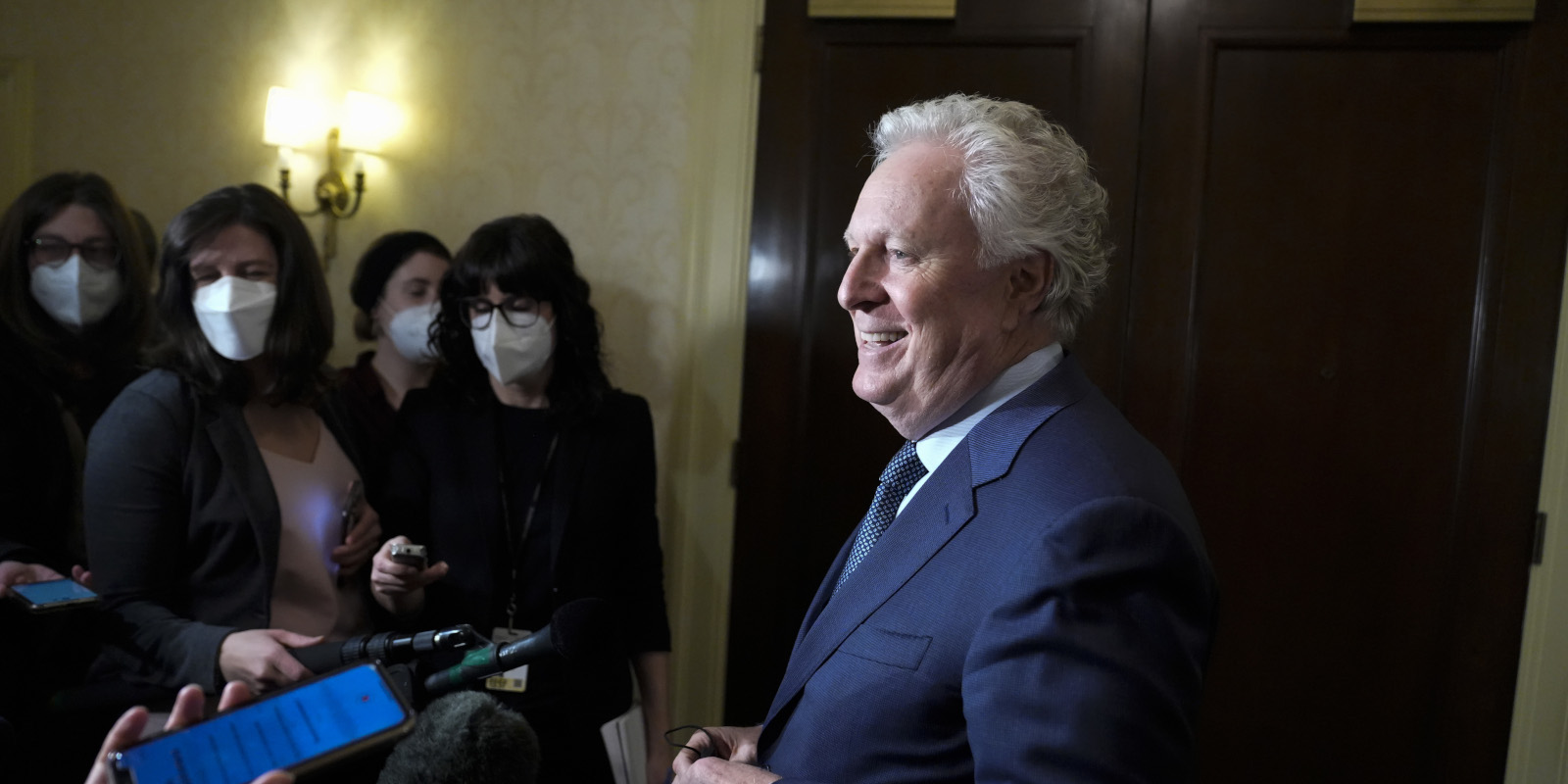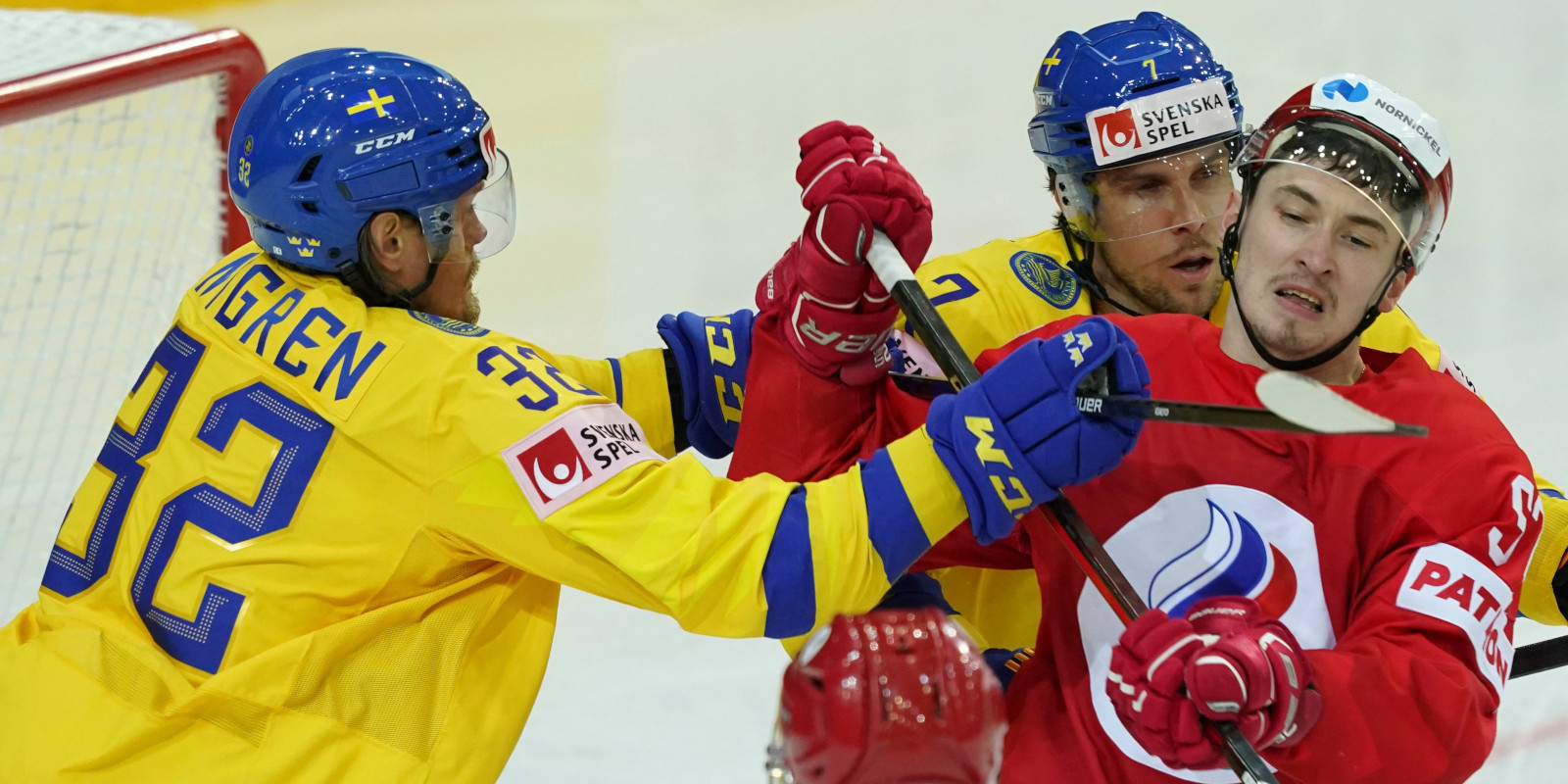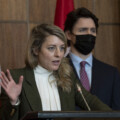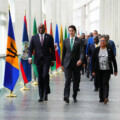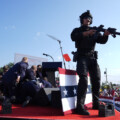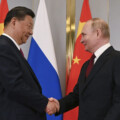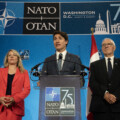It may be a sign of things to come that the Conservative Party’s leadership race has only one declared candidate and yet the attacks are already flowing.
At an event in Saskatchewan with local MPs, Ottawa-area MP Pierre Poilievre, who has already declared his candidacy for leader, accused former Quebec Premier Jean Charest of raising taxes during his more than nine years in provincial office.
The criticism comes quickly on the heels of an interview in which Charest promised to bring fiscal constraint to Ottawa if he wins the Conservative leadership.
After a meeting with Conservative MPs last week, Charest told the Globe and Mail that he had a strong record as a fiscal conservative when he was Quebec’s premier and would not be running as a “red Tory,” but as a true conservative, who can appeal to the party’s base. Charest promised that he wouldn’t be “running against socons” if he joined the race.
Conservative members watching the leadership race should expect a lot more of this kind of skirmishing because, although Charest left office with a budget surplus, his record on fiscal issues drew mixed reviews at the time.
In a 2012 report by the Fraser Institute, Charest’s overall fiscal performance was ranked seventh among the ten provincial premiers. He was ahead of only Ontario Premier Dalton McGuinty, PEI Premier Robert Ghiz, and Manitoba Premier Greg Selinger (see chart below).
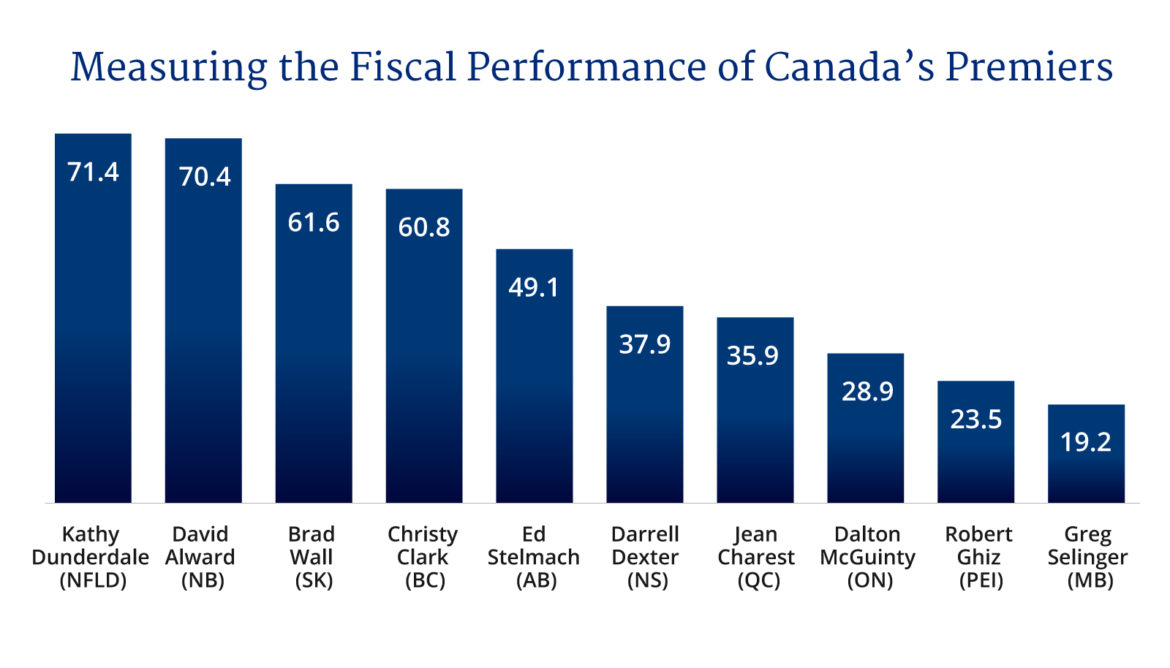
Graphic credit: Janice Nelson
Charest’s performance on government spending and deficits and debt was better. He ranked fifth overall amongst his peers on government spending—though still below New Brunswick Premier David Alward, Newfoundland and Labrador Premier Kathy Dunderdale, British Columbia Premier Christy Clark, and Nova Scotia’s Darrell Dexter—and sixth on deficits and debt. The authors observed that while Charest recorded an annual deficit, on average, over his tenure, he still managed to reduce net debt as a share of the economy due to a combination of some annual surpluses and a growing economy.
The main explanation for the difference with his overall record was his performance on taxation where Charest ranked eighth among the premiers. This mostly reflects some tax increases during his tenure and in part tax reductions in other provinces over a similar time frame.
These studies compared the policy records of the different premiers on a range of economic and fiscal indicators including the change in government spending, deficits and debt, and changes in taxation over their tenures. The think tank released several annual studies over Charest’s time as premier that evaluated Quebec’s fiscal performance relative to its peers.
The authors relied on a weighting of thirteen measures in these three areas (such as changes in program spending relative to economic growth and inflation or changes in income tax rates) to establish a score out of 100.
Charest hasn’t made his mind up about joining the race yet, but has been publicly toying with the idea and trying to shore up support with influential people in the party.
Poilievre supporters have picked up on his line of attack, with Alberta MP Shannon Stubbs declaring that the new leader “must share our values, and respect our policies. I’m against the carbon tax, the long gun registry, and for tax cuts, not tax hikes.” Stubbs also posted a photo on Twitter of Charest sharing a laugh with Prime Minister Justin Trudeau and describes the former premier as a “former Liberal.”
Former senator André Pratt defended Charest in the National Post, arguing that he opposed the abolition of the long-gun registry because that’s what Quebec voters wanted and that his efforts to improve the province’s finances also included income tax cuts.
Pratt admitted that Charest has made decisions that will be unpopular with the Conservative base, but urged voters to focus on beating the Liberals in a national election rather than treating “compromise as treason” in a quest for “partisan purity.”
The Conservative Party of Canada’s leadership race started to take shape last week. The party released rules that will govern the campaign including its start date, the membership cut-off date, and that September 2 will be the date when the party members select their next leader.
This release of the rules could spark a few entrances into the race, with Charest, Brampton Mayor Patrick Brown, and commentator Tasha Kheiriddin considering running.
Recommended for You

Geoff Russ: A future Conservative government must fight the culture war, not stand idly by

DeepDive: Two-parent families: why they’re so important—and why there’s cause for concern in Canada

The Weekly Wrap: The rise of JD Vance and the reshaping of the Right

Sean Speer: The federal government needs to back off—and the provinces need to step up

